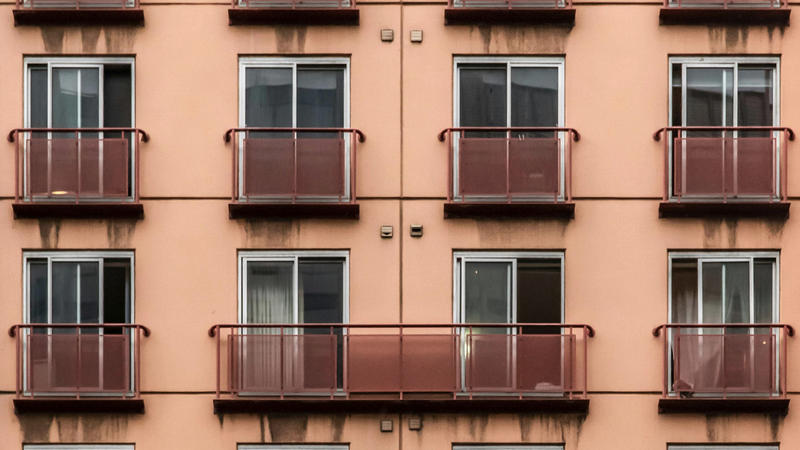Published 19:08 IST, August 29th 2024
UK’s housing mess requires costly fix
UK Prime Minister Keir Starmer on Aug. 27 reiterated his promise to build 1.5 million new homes during the current parliament.

Elephant in the room. Fixing the UK’s housing mess will require some government firepower. Prime Minister Keir Starmer has pledged to boost the supply of cheap homes and shake up planning laws. But relying on private housebuilders may only go so far, and the sector’s share prices are not pricing in a boom. Starmer will also need to use public funds.
The UK’s housing crisis appears to be getting worse by the day. House prices in London, for example, have nearly doubled from 7 times median income in 2002 to 13 times last year. The Centre for Economic Performance found that in the 30 years from 1989, 3 million fewer houses were built than in the previous three decades despite rising demand from a growing population. Starmer wants to catch up by building 1.5 million new homes during his parliamentary term, equivalent to an annual target of 300,000. The Conservative government led by Rishi Sunak only delivered 226,000 in its final year of office.

Starmer is already tackling one of the biggest problems. Planning applications are under the control of regional authorities, allowing local vested interests to stymie development. The government is therefore proposing to employ more planning officers, force local authorities to abide by strict housing targets and broaden the scope of land that can be built on.
But a housing boom will still need developers to play ball. Private housebuilders will only build more if they expect higher demand and profits. But with building and labour costs elevated, and demand soft due to high mortgage costs, they are unlikely to rapidly ramp up construction. Developers may even be wary that a surge in building could depress prices, and so prefer to sit on unused land. The top 10 UK housebuilders have some 700,000 plots of undeveloped land according to one 2023 estimate.
Investors in housebuilders are not expecting anything like the boom Starmer is promising. While housebuilder stocks have risen since Labour’s election win in July, most are still trading below their level in December 2021, when the Bank of England started raising rates. Analysts are equally sceptical. Take Persimmon, which is a likely beneficiary of Starmer’s plan given its focus on cheaper homes. The group delivered just around 9,900 homes in 2023, about a third lower than the previous year. Analysts expect that to rise to just over 14,000 new homes by 2029 according to Visible Alpha forecasts, which would still be below the number sold in 2022. Barratt Developments is expected to deliver just below 17,000 new homes in 2029, less than the roughly 18,000 it built in 2022.

Starmer could seek to encourage more private building through schemes like the Conservative Party’s “help-to-buy” programme, which lowered downpayments for first-time buyers and handed them interest-free loans for five years. But that scheme, which ended in 2022, was not very successful: it pushed up house prices, but did relatively little to help new housing starts.
What Starmer really needs is to boost the number of cheaper homes. Developers must build a certain percentage of affordable homes, which are often then sold to local councils and non-profit housing associations and rented out, usually with government support for tenants. But such properties accounted for just 13% of the UK’s new home supply in 2023. It doesn’t help that local authorities have faced significant reductions in funding grants from central government, which have fallen by 46% in real terms since 2010 according to the Institute for Fiscal Studies. Housing associations, meanwhile, are struggling with higher maintenance costs for existing homes, limiting their ability to buy new ones.
That’s why Starmer needs to step up. Chancellor Rachel Reeves is likely to raise rents for affordable homes, which are often paid with government subsidies, by more than inflation for the next 10 years. That would bring in more cash for local housing associations and councils, helping them invest in more properties. The government could also increase direct support to them with grants. One industry player reckons Starmer may announce a new housing fund worth several billion pounds in October’s budget. That would be expensive at a time when the country is already facing a 22 billion pound spending hole this year. But if Starmer wants to solve the UK’s housing problem, he will need to be bold.
Context News
UK Prime Minister Keir Starmer on Aug. 27 reiterated his promise to build 1.5 million new homes during the current parliament. In a speech given in Downing Street, Starmer pledged to “take on the blockers” to housebuilding by accelerating the planning and approval of new homes. When questioned on tax increases during a visit to central Scotland on Aug. 28, UK Chancellor Rachel Reeves said she would be making “difficult decisions in a range of areas” and refused to rule out increases to both inheritance and capital gains tax, according to Sky News. Reeves intends to introduce a 10-year formula in October’s Budget that will increase annual rents for social housing in England by the Consumer Price Index measure of inflation plus an additional 1%, the Financial Times reported on Aug. 20 citing unnamed government sources.
Updated 19:08 IST, August 29th 2024
